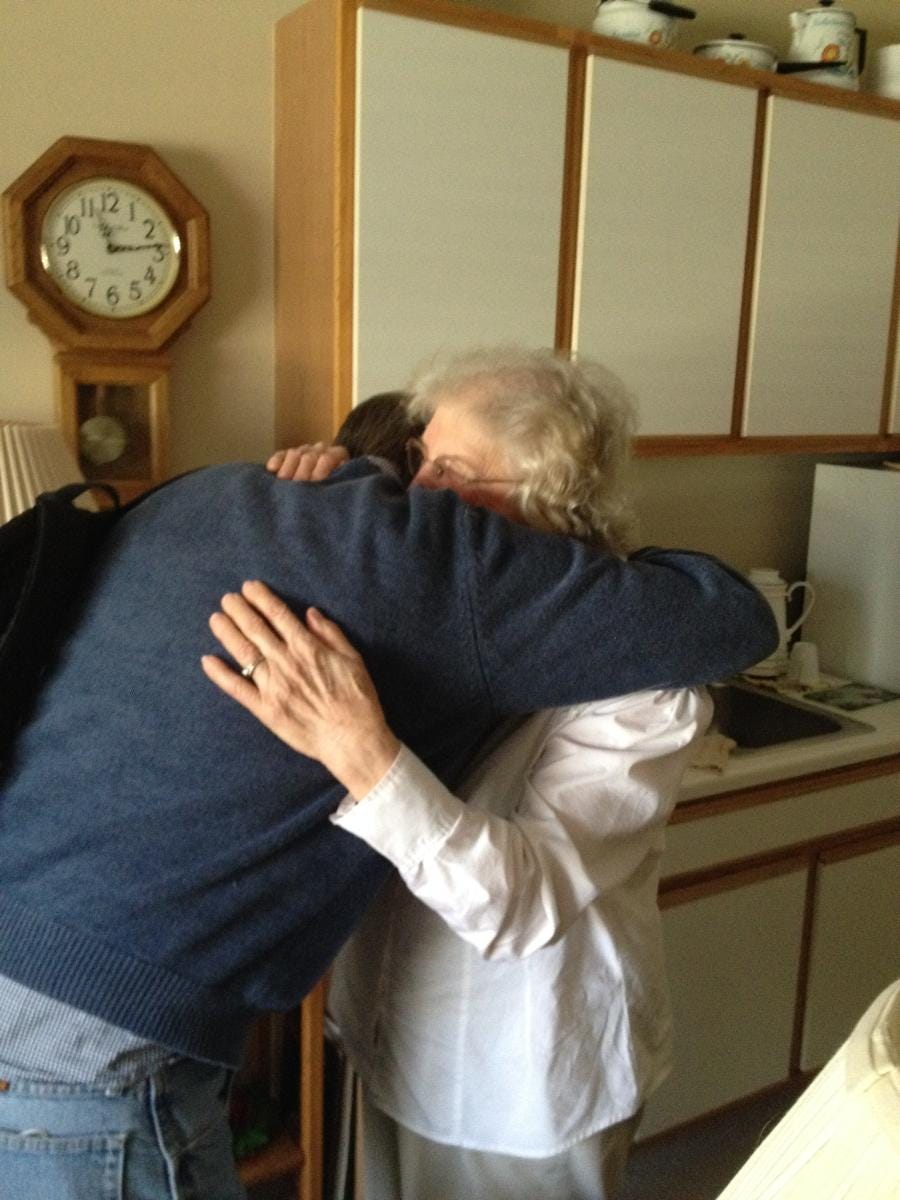020 - Of course it's hard to think - and other ways to be helpful for someone who is grieving.
Welcome back (or welcome)!
I’ve done a couple extra shifts at the hospital this week and talked with some people outside the hospital who are walking others through difficult times.
It reminds me of the importance of being equipped to be find words that are helpful to others.
Here’s a chapter from my book, This is Hard: What I tell people when loved ones die.
It’s called “Of course it’s hard to think.” I’m sharing it this week because I’ve been watching — and talking with — people who need this affirmation. (And to give you a taste of the book if you’ve been wondering whether it might be helpful. (This week I learned that it’s being used for a GriefShare group and is being shared from one friend to another. I’m grateful to be part of that process.))
+++
“I don’t know why I can’t remember that.” I hear it all the time.
We’re standing in a hospital room, an hour after a loved one has died.
People forget how to write. People forget the names of places they have seen a hundred times.
And then people say, “I’m sorry. I can’t think of that name. I can’t remember my address. Why can’t I think of that name?”
They, or maybe you, feel like it must be your fault that you can’t remember.
I ask them not to apologize.
They, or maybe you, just had a massive disruption of everything. You are wondering about what will happen next. You are wondering what you could have done differently. You are thinking about what people will say, what people will expect from you. And, at the same time you have all these details, you are realizing that you will never have another conversation with this person.
Of course you can’t think the way you wish you could. Your mind is preoccupied by questions. Your body has just had a shock.
What can you do to help yourself?
You can ask people to repeat questions. You can ask other people to answer on your behalf. You can ask for a few minutes to think or to rest. You can eat something (even if you don’t feel like it).
Nothing’s wrong with your thinking. Everything is wrong with your heart.
(from This is Hard: What I tell people when loved ones die.)
+++
I’m getting ready for some conversations with friends for podcasts and groups. That preparation always helps me to sharpen my thinking. Here are some bullet points about being helpful in loss that I’m working on:
Timing is important: what you say differs depending on whether the loss was seconds or minutes or hours or days or weeks or months or years ago.
Personalities matters in offering support. Introverts and extroverts, for example.
Everyone loses a different person, so stories and memories and regrets will differ. A son can say, “dad, you may not need this but we do.”
Validation of the loss is important.
I’ll tell you more about where to listen.
+++
In case you missed this handout, here are Thirty-one things to say and do to help someone when their loved one has died (other than sending flowers.)
See you next week.
Jon





Sounds like we need some grace when we are being there for people who may be overwhelmed on many different levels. And I like how you say “Nothing’s wrong with your thinking. Everything is wrong with your heart. “